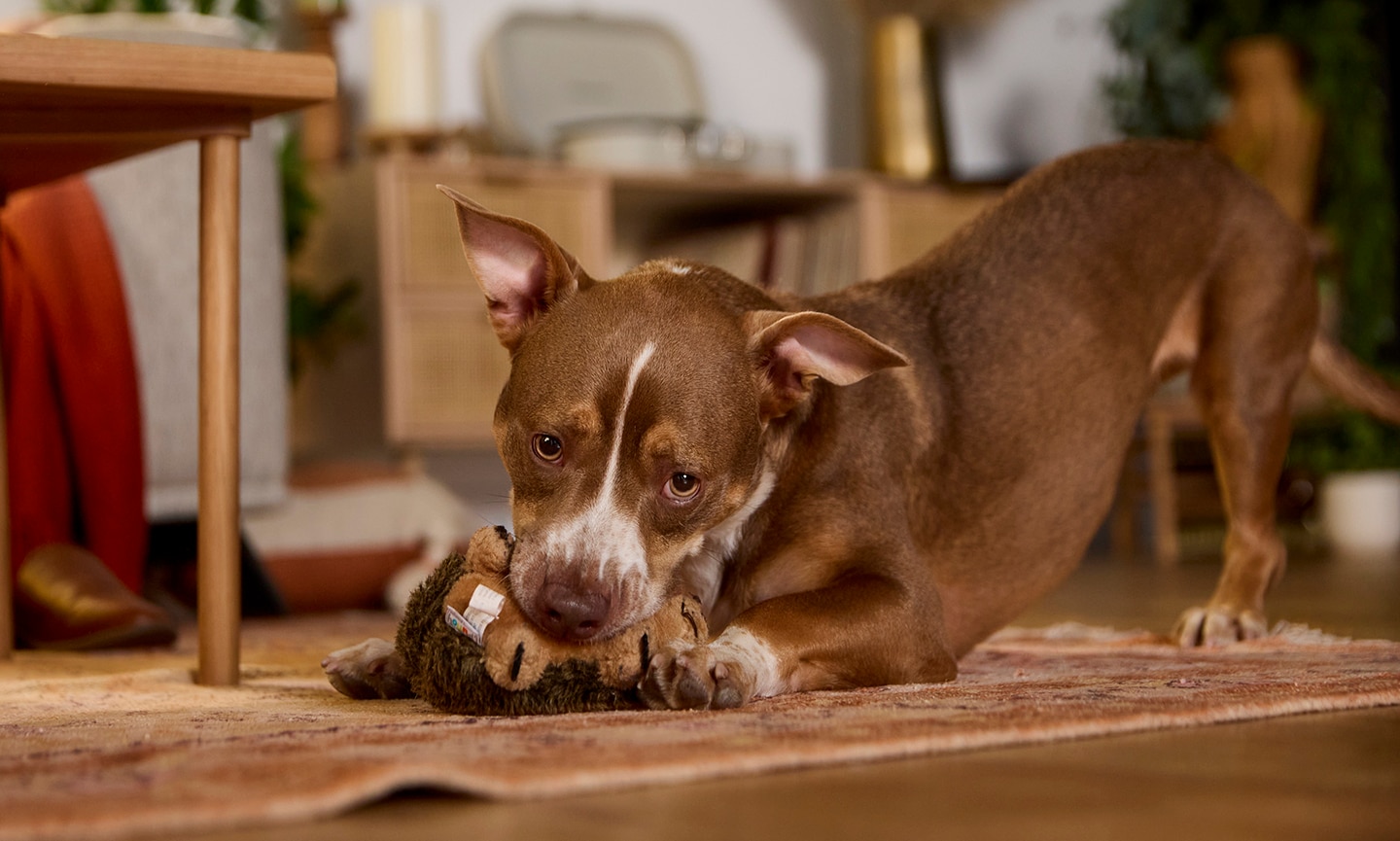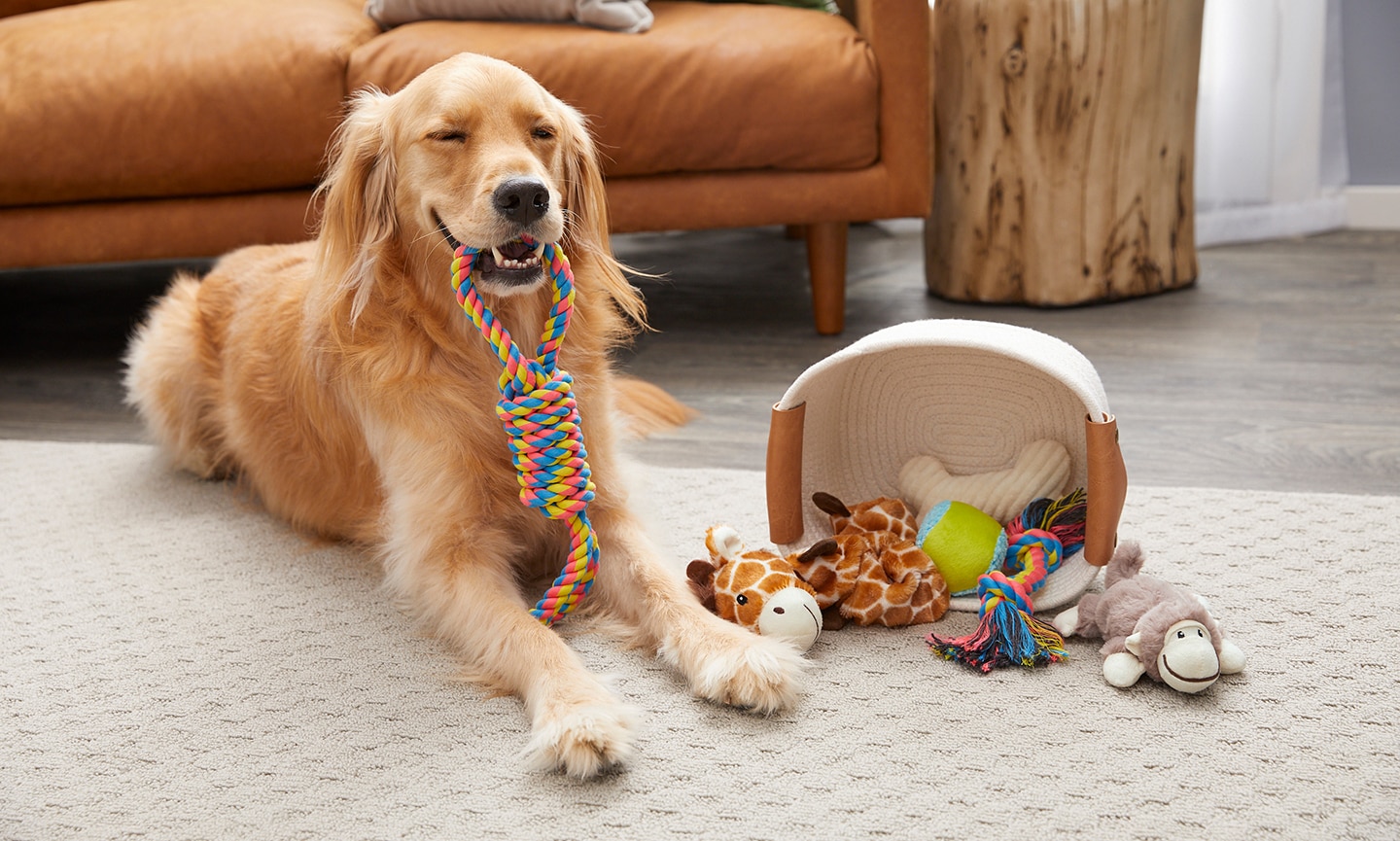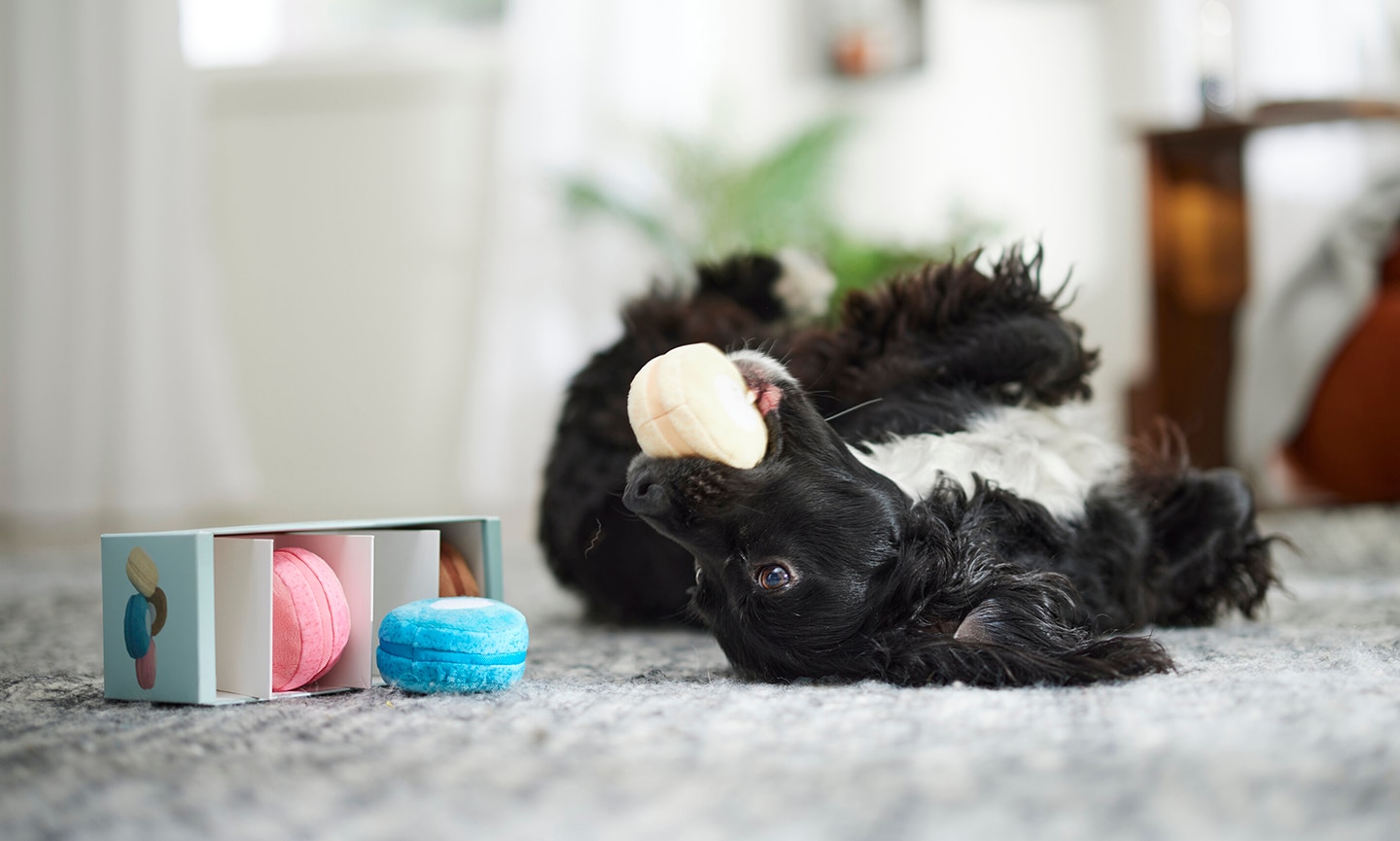Why Do Dogs Bring You Toys When You Get Home?
It’s heartwarming to be greeted enthusiastically by your dog at the door. And each dog’s greeting ritual is unique: Some dogs might wag their tail and lick their owners, and others might jump on their owners or whine or bark at them.
One of the quirkier greetings is when a dog greets you with his favorite toy in his mouth. If you have a dog that likes to offer dog toys to you upon your arrival home, you may wonder, “Why do dogs bring you toys when you get home?”
Different dogs have different motivations for bringing a toy to the door. Here are three of the most common reasons dogs bring you toys when you get home.
3 Reasons Dogs Bring You Toys When You Get Home
1. Your Dog Wants to Play

While you were busy at work or running errands, your dog was home snoozing the day away, because there’s really not much else to do while you are gone. That’s why when you come home, it can very well be the highlight of his day.
This excitement can sometimes last for the rest of the night, or your pup may just have an initial bout of energy right when you get home.
For some dogs, this excitement can stem from wanting some playtime with you, especially if you typically play with your dog right away when you return.
It doesn’t take very long for a dog to learn that it’s playtime when you return home. When your dog brings you a toy, it’s his way of saying, “Come play with me!”
Most owners provide their dogs with a variety of dog toys that engage them in different ways for physical and mental stimulation.
The toy your pup chooses to present to you may be a toy that you use most often to play with him.
If you like this greeting behavior, keep on playing with him when you return home.
2. Your Dog Wants To Show Off Their Toy

Some dogs may present their favorite dog toy to their parents but not necessarily want to play right at that moment. They will prance in front of you and appear to “show off” their toy, then retreat whenever you reach for it.
This may lead you to wonder, “If they don’t want to give up their precious toy, then why would they bring it up to me? How do I even respond to this behavior?”
These dogs may have learned that their owners give them more attention when they hold something in their mouth, and they like the undivided attention they get when they show off their favorite toy.
If you start talking to him and giving him extra attention, he may enjoy that type of engagement.
It could also be that some dogs think of it as a game of keep-away. Regardless of the dog’s motivation, he got what he wanted: You interacting with him.
3. Your Excitable Dog Needs a Distraction

For dogs that exhibit a lot of excitable behavior, such as barking or nipping, you may encourage them to go get a toy to redirect their exuberant behavior. Or you may give your dog a toy as soon as you step through the door to keep your dog’s mouth busy.
This is a good solution for dogs that get overexcited and cannot control themselves. It’s difficult for a dog to bark and nip when they’re holding an item in their mouth.
After numerous repetitions, a dog can learn to grab a dog toy right away when he hears his owner at the door. Instead of forcing the dog to sit still, we can give them a different outlet for their energy. So you may have inadvertently started this ritual toy offering, and now your pup has learned it.
From a simple tail wag to offering favorite toys, every dog has a different greeting style. And some just happen to be toy bringers!
